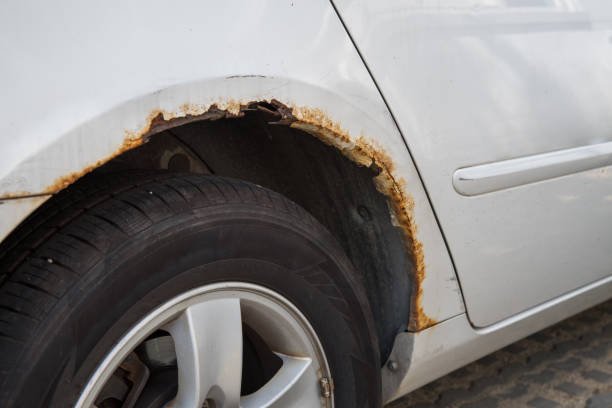when discussing materials suitable for environments that are prone to corrosion, several metals come to the forefront due to their resilience and longevity. Below are three types of metals that exhibit a high degree of resistance to corrosive agents.
Here are three types of metal that are resistant to corrosion:
- Stainless Steel
- Titanium
- Gold
Stainless Steel: The Versatile Alloy
Composition
Stainless steel is a complex alloy primarily made up of iron, chromium, and nickel. It may also contain other elements like molybdenum, manganese, or nitrogen.
Corrosion-Resistant Mechanism
What sets stainless steel apart is its ability to resist corrosion, which is primarily due to the chromium content in the alloy. When exposed to oxygen, chromium reacts to form a thin protective film of chromium oxide on the surface. This film acts as a barrier that prevents further corrosion, both at the surface and deeper into the metal’s structure.
Applications
Stainless steel is ubiquitous in various industries, including construction, automotive, and healthcare. It is commonly used for kitchen appliances, cutlery, construction beams, and even surgical instruments due to its hygienic properties and resistance to sterilization methods.
Titanium: The Lightweight Powerhouse
Composition
Titanium is a lightweight but extremely strong metal. It is generally not used in its pure form but as an alloy, mixed with elements like aluminum or vanadium to enhance its properties.
Corrosion-Resistant Mechanism
Titanium is particularly noted for its excellent resistance to corrosion by chlorine and seawater. Much like stainless steel, titanium forms a passive oxide layer that protects it from further corrosion.
Applications
Its high strength-to-weight ratio and corrosion resistance make titanium an ideal choice for aerospace applications. It’s also widely used in medical implants like hip and knee replacements. In industrial settings, it’s often used in desalination plants and chemical processing where corrosion resistance is a must.
Gold: The Ageless Metal
Composition
Gold is a pure element, and its natural luster and color do not fade over time, mainly because it does not oxidize or corrode.
Corrosion-Resistant Mechanism
The elemental purity of gold gives it an innate resistance to corrosion. It does not react readily with oxygen or other corrosive agents, which makes it one of the most stable metals.
Applications
Because of its corrosion resistance and excellent conductivity, gold is frequently used in high-reliability electronics like connectors and switches. It’s also the standard choice for quality jewelry and is even used in dentistry for fillings, crowns, and bridges.
Conclusion
Understanding the corrosion resistance of different metals is crucial for their selection in various applications. While stainless steel offers versatility, titanium provides lightweight strength, and gold offers unmatched stability. Each of these metals has unique properties that make them ideal for specific industrial, medical, and aesthetic uses where corrosion resistance is a key consideration.




